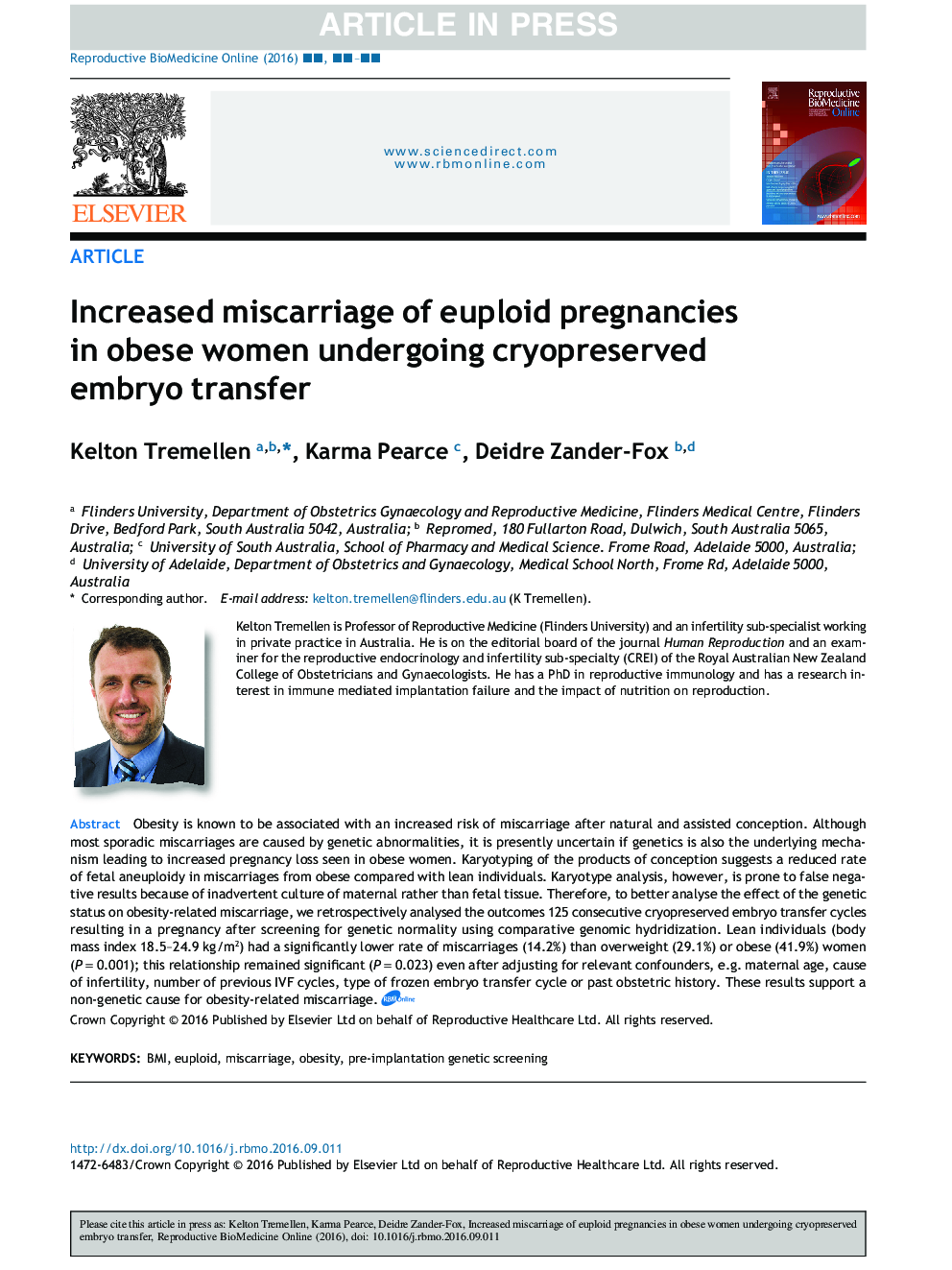| Article ID | Journal | Published Year | Pages | File Type |
|---|---|---|---|---|
| 5696816 | Reproductive BioMedicine Online | 2017 | 8 Pages |
Abstract
Obesity is known to be associated with an increased risk of miscarriage after natural and assisted conception. Although most sporadic miscarriages are caused by genetic abnormalities, it is presently uncertain if genetics is also the underlying mechanism leading to increased pregnancy loss seen in obese women. Karyotyping of the products of conception suggests a reduced rate of fetal aneuploidy in miscarriages from obese compared with lean individuals. Karyotype analysis, however, is prone to false negative results because of inadvertent culture of maternal rather than fetal tissue. Therefore, to better analyse the effect of the genetic status on obesity-related miscarriage, we retrospectively analysed the outcomes 125 consecutive cryopreserved embryo transfer cycles resulting in a pregnancy after screening for genetic normality using comparative genomic hydridization. Lean individuals (body mass index 18.5-24.9âkg/m2) had a significantly lower rate of miscarriages (14.2%) than overweight (29.1%) or obese (41.9%) women (P = 0.001); this relationship remained significant (P = 0.023) even after adjusting for relevant confounders, e.g. maternal age, cause of infertility, number of previous IVF cycles, type of frozen embryo transfer cycle or past obstetric history. These results support a non-genetic cause for obesity-related miscarriage.
Related Topics
Health Sciences
Medicine and Dentistry
Obstetrics, Gynecology and Women's Health
Authors
Kelton Tremellen, Karma Pearce, Deidre Zander-Fox,
